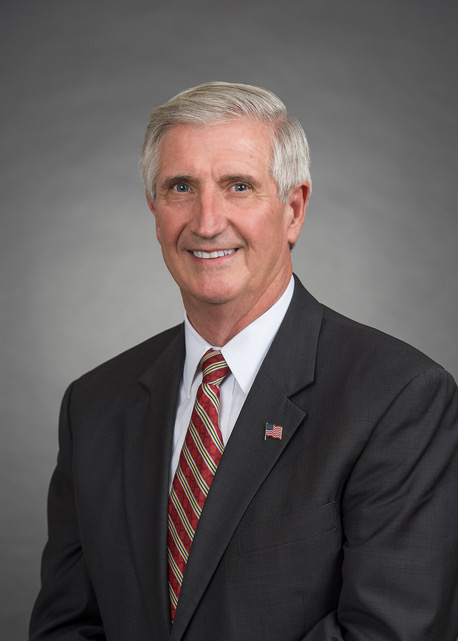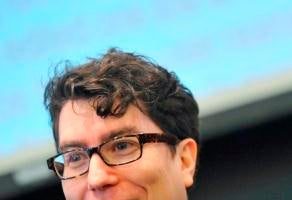
Andrew H. Card has had a robust career in public service and government. He served as the second-longest tenured chief of staff in White House history, working with President Ronald Reagan, President George H.W. Bush and President George W. Bush, and has helped other administrations transition in or out of the White House.
For his lecture, at 10:45 a.m. today in the Amphitheater as part of Week One’s overarching theme of “The Evolution of the Modern Presidency,” he will reflect on his own experiences in American government and how he witnessed that evolution in his roles serving three presidential administrations throughout his career.
He said he plans to discuss the experiences of working in the White House through many different events and scenarios, the challenges to the presidency that he sees today and the societal changes that have impacted the president’s role.
During Card’s time as chief of staff, he was driven in part by the desire for each president to succeed in the role of preserving and fostering democracy.
“I’m an optimist, and I want to make sure every president is successful because even if I may disagree with them, I don’t want them to fail,” he said. “There’s a lot at stake and I think there are increasing numbers of impediments, if you will, to a president being able to make some of the decisions they have to make, compared to when I first started working at the White House.”
Outside of his roles in government, Card has worked as president of Franklin Pierce University, as executive director of the Office of the Provost and Vice President for Academic Affairs and as acting dean of the Bush School of Government and Public Service at Texas A&M University. He was also chairman for the National Endowment for Democracy and is the interim chief executive officer of the George & Barbara Bush Foundation.
He is also known by many for the photograph of him, taken Sept. 11, 2001, delivering the news of the second attack on the Twin Towers to President George W. Bush.
Card recognizes the legacy of the photograph and the pivotal nature of that moment.
“I know that photograph is an iconic photograph. It defines an era,” he said. “You should know I am not an iconic person, but the photograph is iconic, and I do feel an obligation to talk a little bit about 9/11 and what happened on that day. But I hope to do it in the context of my general comments about the nature of decision making in the White House and its relationship to the American people and how they communicate.”
As he discusses the presidency and how it has evolved, Card expects his lecture to be controversial: “I’m not afraid to be controversial, but I will definitely not be partisan.”
He hopes Chautauquans will understand the gravity of protecting democracy and civic engagement, and that while there is not an obligation to participate, there is an invitation. It’s an invitation we should accept, since he believes the most important phrase in the United States’ democracy is “We, the people.
“Too many times, the people forget that they are the center of the democracy,” he said. “It’s not the president or a leader; it’s we, the people.”




